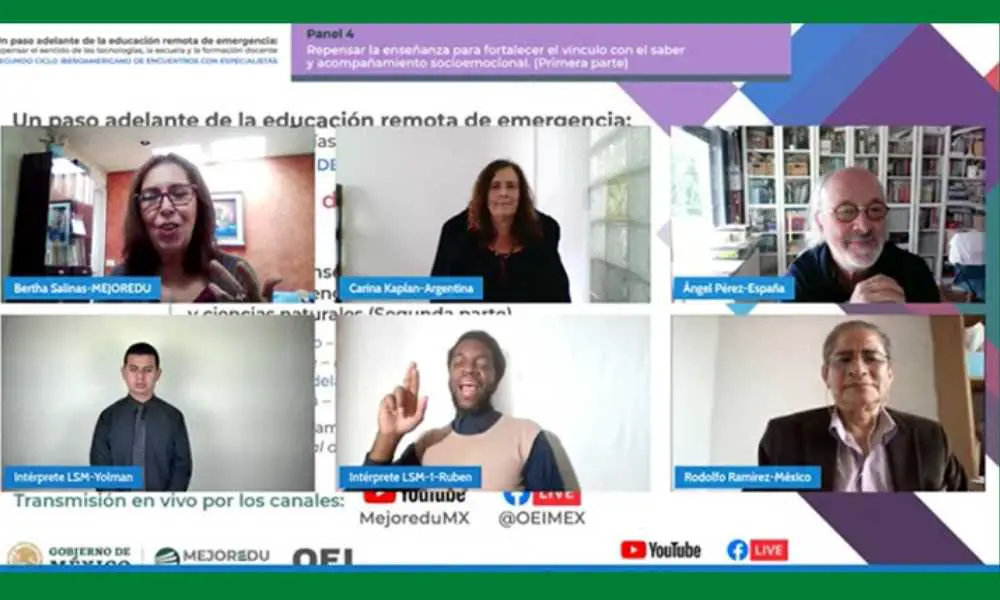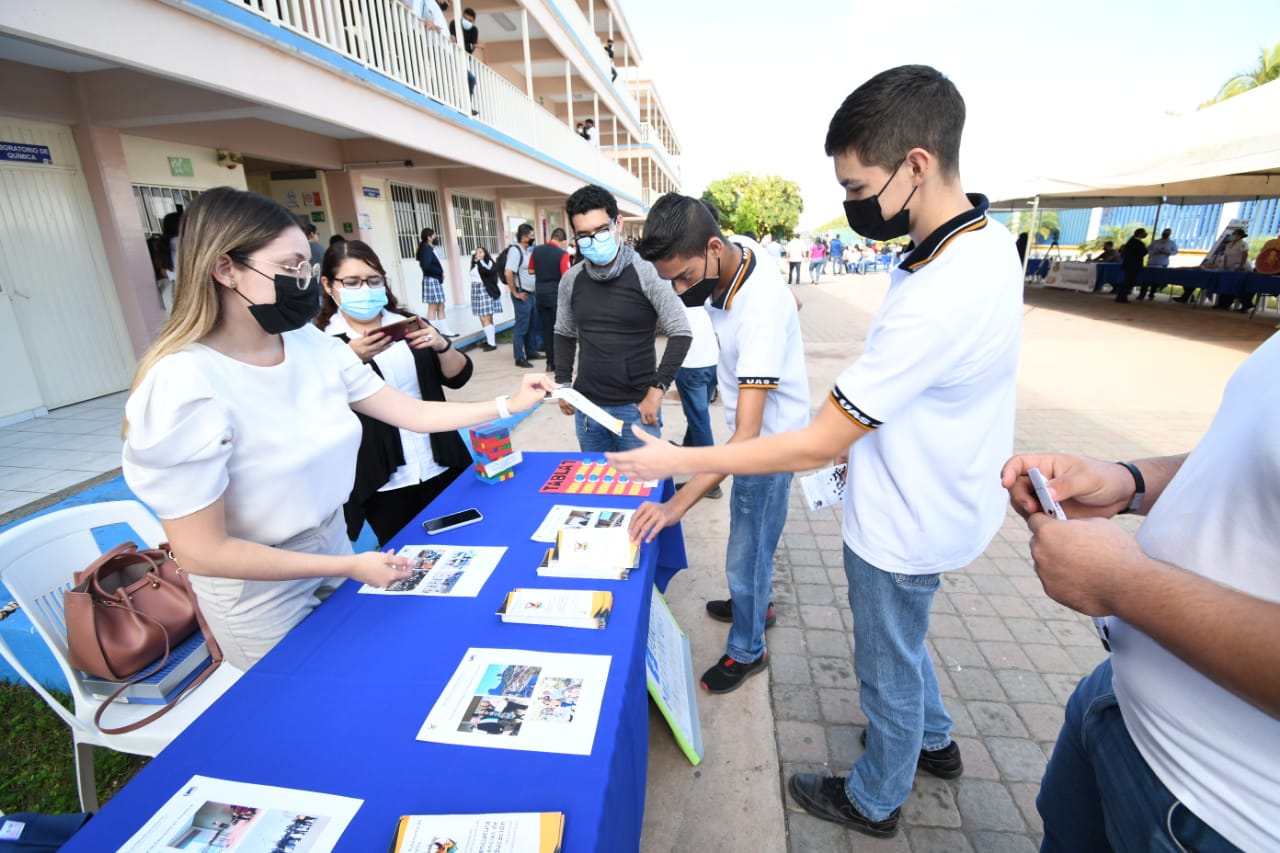With the participation of Carina Kaplan –Director of the Research Program on Transformations, Subjectivity and Educational Processes at the Faculty of Philosophy and Letters of the University of Buenos Aires, Argentina–; Angel Perez Gomez –Doctor of Psychology from the Complutense University of Madrid–, and Rodolfo Ramírez Raymundo –Master of Science with a specialty in Education from the National Polytechnic Institute–, and moderation by Bertha Salinas –member of the Mejoredu Citizen Council–, Panel 4 of the second Ibero-American Cycle of meetings with specialists was held, organized by the National Commission for the Continuous Improvement of Education (Mejoredu) and the Organization of Ibero-American States for Education, Science and Culture (OEI) .
With the theme “Rethinking teaching to strengthen the link with knowledge and socio-emotional support (first part)”, the specialists highlighted the need to reflect at school as a space for socialization where practices for self-care and self-care are learned. of the other.
Carina Kaplan pointed out that it is essential to build a look at the school that educates for sensitivity towards others, placing affectivity at the center of the educational scene. «It is necessary to vindicate the pedagogy of affection, to center the emotions as a fundamental element that allows creating ties and empathy towards the other; to educate is precisely to restore the condition of the human, “he said.
He mentioned that it should be clear that in unequal societies the school is an institution that promises equality, where students deserve to be strengthened in such a way that, if society belittles them, the school is the symbolic space to praise them.
He explained that the pedagogy of care implies dealing with emotions in a relational, fraternal way, and that in this age of inequality it is necessary to vindicate a pedagogy of emotions that demolishes walls and allows the silenced majorities to be accommodated, which is why the school is constituted in a symbolic territory of hope.
During his speech, Ángel Pérez Gómez stressed that it is key to rethink the role of teachers. In his opinion, aspects such as learning to live in uncertainty and handling fragility and permanent change should be prioritized; cultivate the wisdom of information and critical, practical and creative thinking, prioritizing the relevance and quality of knowledge; encourage caring for others; promote nature care –that is, develop ecological awareness–, and understand, take advantage of and enjoy the powerful virtual scenarios in an educational way.
He said that the inherited pedagogy is not prepared to respond to current educational demands as it is based on rote and decontextualized learning; that today a new pedagogical culture is required, focused on developing cognitive and socio-emotional capacities and dispositions to face the complexity of current problems, and that it is necessary to rethink the teaching task from three axes: reconstructing their practical knowledge, reactivating the implicit «Pedagogical backpack» that they have built throughout their experience, and learn to teach not only through models, strategies and theories but, above all, learn to know, think, feel and act as a professional of knowledge and educational learning .
Finally, Rodolfo Ramírez Raymundo said that the closure of schools meant the closure of one of the largest spaces for socialization, since that is where a large part of the personality, affection and relationship skills of children and young people is built.
He indicated that, despite the great effort of the teaching body to provide attention to their students, they have had to face the challenge of learning alone, in addition to the fact that a large part of remote education has depended on family conditions for access to technological devices and adequate spaces, and the possibilities and capacities of adults to provide accompaniment and support. He expressed the need to make the principle of equity valid and give priority to those students who had little or no communication with their teachers.
He concluded by emphasizing the necessary teaching autonomy to foster the ability to learn to think, enhance intelligence and develop critical thinking of students, based on the knowledge and experience they possess.
Access the video of panel 4:
https://www.facebook.com/watch/live/?v=175446987983783&ref=watch_permalink





